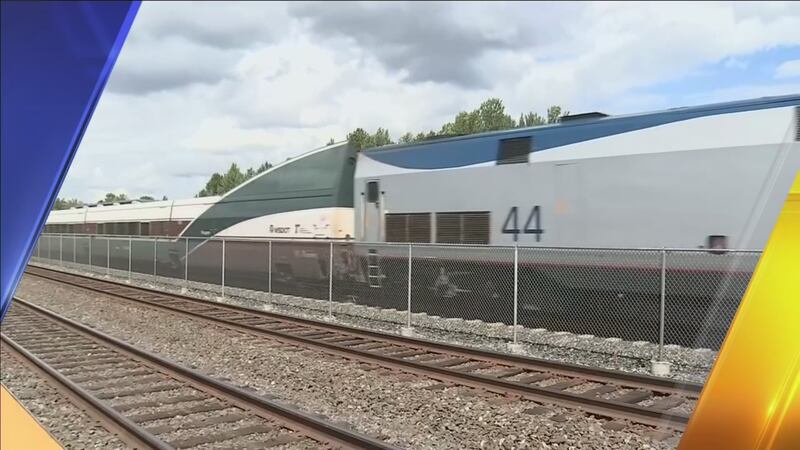TUKWILA, Wash. — In Tukwila on Wednesday, Dane Cheatley boarded an Amtrak Cascades train, just like the one that derailed near DuPont in 2017 and killed three people.
"I'd say our chance of making it there safely is pretty good," he said.
Last month, the National Transportation Safety Board found wheel units flew around like missiles when adjoined train cars broke apart.
The NTSB said the Talgo Series VIs started service in 1999, just before federal regulators required them to be built stronger to better withstand crashes, and that an exemption allows them to operate.
The NTSB recommends the Series VIs be replaced "as soon as possible."
Why are they still running nearly a month later?
"We are working with Amtrak to acquire replacement equipment that we can use in an interim period," said Janet Matkin, of the Washington State Department of Transportation.
Matkin said the problem is that there "aren't spare trains just in storage somewhere."
Scroll down to continue reading
More news from KIRO 7
- Bank robbery in Everett under investigation
- FBI investigating possible arson, explosion at Renton church
- 'Blitzed' drunken driver fled with torso of hit-and-run victim in car, police say
- Message displayed by Renton church at center of hate crime investigation
- Do you have an investigative story tip? Send us an email at investigate@kiro7.com
Matkin said that's an even larger problem in summer, when demand is high.
Talgo disputes the NTSB's findings about the derailment and tells KIRO 7 it intends to file a motion for reconsideration.
"Our passenger cars are safe and meet or exceed all crashworthiness requirements," the company wrote in a statement.
Talgo notes regulators at the Federal Railroad Administration have not ordered the trains pulled from service.
Talgo wrote to the NTSB that its report is "founded on an insufficient factual basis and erroneous analysis" and that Talgo was shut out of the investigation, even threatened with arrest when workers tried to take photos of the mangled train cars at Joint Base Lewis-McChord.
State officials hope to have an answer in the next month about where replacement train cars might come from.
The long-term plan is to replace the train that derailed and the remaining four older models.
Insurance money should cover one of them.
Each new train set costs $25 million.
Of the six current Amtrak Cascades trains that run between Eugene, Oregon and Vancouver, B.C., four are Talgo Series VIs. The other two, owned by the state of Oregon, are newer Talgo models.
Cox Media Group








